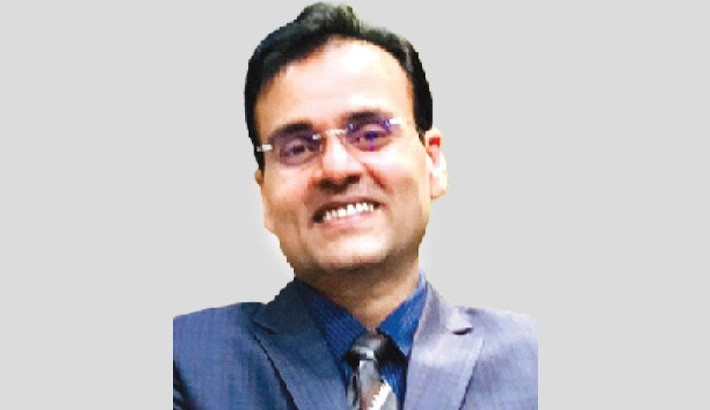National Library Day
Importance of Rural Libraries for Building Smart Bangladesh
Professor Dr. Md. Nasiruddin Mitul
Published: 04 Feb 2024

Bangladesh is going to celebrate ‘The National Library Day’ tomorrow with the slogan – ÔMÖš’vMv‡i eB cwo, ¯§vU© evsjv‡`k MwoÕ (Let Us Read Books in Library, Build a Smart Bangladesh)’. In collaboration with the Department of Public Libraries and Ministry of Cultural Affairs, all library professionals in Bangladesh celebrate the day each year on 5th February since 2018.
On 12th December 2022, the honourable Prime Minister announced the Master Plan of building smart Bangladesh within 2041. The "Smart Bangladesh" ecosystem will stand on four key pillars –Smart Citizen; Smart Government; Smart Society and Smart Economy.
The present government is committed to providing door steps services for every citizen without any distinction of urban, semi urban, rural or extreme rural areas and even without any discriminations of occupation, creed, class, race or caste. No doubt that it is a bold decision but there may be lot of challenges on the way to implement it.
The first challenge is to connect and engage the rural people, who always prefer to get information quickly and easily. But we are not giving them as much information services as they require. Time has come to assess the information needs of the rural people.
With a view to building a smart Bangladesh, it is essential to explore the information needs of the rural people. A recent research shows that there are mainly seven occupational people in the rural areas. They seek information related to livelihood, general education, health and hygiene, job and employment, daily life, banking and cooperatives, climate, agricultural and recreation.
Everyone in rural areas has individual demand of information. For example, they have demand for information about cultivation of crops. Costal people need information on how they can produce paddy in the salty land at the sea side round the year. In southern part of Bangladesh i.e. Barishal, Barguna, Patuakhali, Noakhakli districts, thousands of rural people live by catching fish in the sea and the river. So, they seek information about weather forecast and disaster related information for their safety.
They also need information on fishing such as breeding and migration patterns. Fisherman also demand information on which time they can catch fish from the sea and the river in the year; when the government issues embargo on catching fish; some are looking information about rule of law for catching fish fry and the punishment pattern. Most of the fishermen are unaware about the use of suitable net for catching fish. They need pin-pointed information about all these issues.
To deliver right information at right time in a right way to the right person, rural library can play a very crucial role. It is the second challenges that as of today, there are no equipped rural library or information systems in Bangladesh which can fulfil people’s information requirements.
Rural People need to be trained up in using technology. It is the third challenge that as of today, government of Bangladesh has not been able to engage the rural human resources fully in using ICT through training centres and other local government agencies. There is still a severe gap between the urban elite and the rural people which should be minimised as soon as possible.
The vision of smart Bangladesh is integrated with village development plan, encompassing personal, human, social, and economic dimensions. Globally, there has been a pressing demand for new approach with a view to improving the quality of life in rural areas, where fulfilment of information demand is a prime necessity. A modern library can help the rural people by providing them the right information, at the right time and in a right way.
Transformation from manual labour to automation is essential which requires changing the existing mind set of the rural people to adapt need based ICT, different micro business models, income generating activities etc. These can easily improve the lifestyle of the rural population. A well-equipped modern library can ensure these services. Therefore, installation of a digital library is the precondition of smart village by which perceptions of users and their expectations can be materialised. Western world emphasised it and they succeeded in making smart villages.
To face the challenges with a view to establishing a smart rural library, the following suggestions can be offered: a). There should be exclusive budgetary provision for installation of a modern rural library b). Professional librarian must be recruited with an attractive salary c). All rural libraries including but not limited to school, college, madrasha, university, NGOs, public, non-public, special etc. should be furnished with reading materials; (d). An integrated network of the rural libraries should be launched forthwith; (e). Orientation of the new users with the new ICTs should be made a regular exercise so that they can be acquainted with the use of different e-resources within local and other networks.
Integration of all the intelligent devices for installing a smart rural library will help us build Smart Bangladesh within 2041.
________________________________________________________
The writer is a Professor, Library and Information Science, National University. Email: [email protected]

